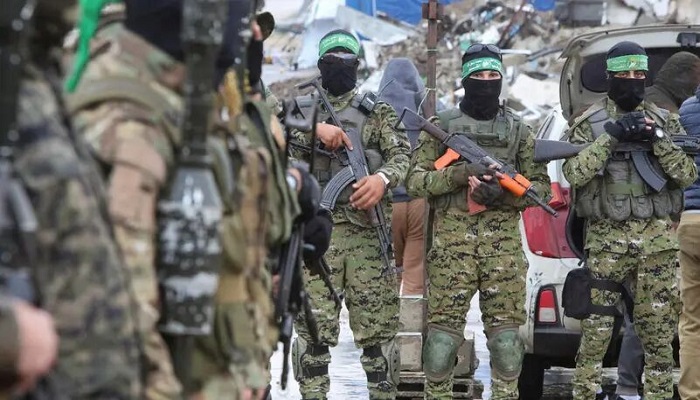PNN – An expert on regional issues, referring to the efforts of Egypt and Qatar to achieve a comprehensive ceasefire between Hamas and the Israeli regime, emphasized: The success of this agreement depends on accepting the legitimate conditions of the resistance movement, including the complete withdrawal of Zionist forces from Gaza.
In an interview with a reporter, Seyyed Reza Sadr al-Husseini stated about the comprehensive ceasefire plan between Hamas and the Zionist regime, mediated by Egypt and Qatar: The reality is that over the past year and a half, after the “Al-Aqsa Storm” operations and the continuous beginning of Israeli crimes, Egypt and Qatar tried very hard to bring the matter to a conclusion with an Arab plan on behalf of the Arab countries, but in the previous stages, for clear and transparent reasons, the most important of which was the disregard for the situation in Gaza and Hamas, they were unable to achieve any success.
He added: At one point, a temporary ceasefire was established that lasted about 50 days, and during 42 days of this period, a number of Israeli prisoners and Palestinian prisoners were exchanged.
During those days, special conditions were created, and the world realized that Hamas had much more power than this regime to continue the struggle and change its direction, that is, in the soft and propaganda spheres.
Sadr al-Husseini continued: I need to explain that the depiction of the exchange ceremony perfectly demonstrated this superiority. Hamas had a meticulous advertising plan for the exchange; advertising banners were prepared, the clothes were perfectly clean and ironed, the cars were new and tidy. The exchange was also designed in such a way that the Zionist regime came under increasing pressure from international public opinion and even the residents of the occupied territories.
Read more:
Palestinian analyst: Hope for changing the nature of the PA is nothing more than a mirage
This expert on regional issues said: The tables turned against Benjamin Netanyahu, who wanted to record the ceasefire and prisoner exchange as a success. Even many former soldiers of the Israeli army, upon witnessing the exchange, spoke strongly about the incompetence of Netanyahu’s cabinet and the weakness of the Israeli army.
Sadr al-Husseini emphasized: Another point is that the Palestinian prisoners were released with high energy and strong morale, and it was announced that hundreds of them, who now have experience of captivity and struggle, will enter the scene of resistance, recruit and train young people.
According to him, after their release, the Israeli prisoners spoke in interviews with cheerful faces and high spirits about the humane behavior of Hamas and Islamic Jihad fighters. They shared fond memories of their time in captivity and considered themselves indebted to their Palestinian jailers. This prompted the Zionist regime to immediately ban them from being interviewed and photographed.
This expert on regional issues continued: Now Egypt and Qatar have again taken action to reach a comprehensive ceasefire agreement. The conditions that Hamas had put forward from the beginning still stand: one, a permanent ceasefire; two, the possibility of delivering humanitarian aid; three, the release of prisoners; and four, the beginning of the reconstruction of Gaza. In addition to these conditions, which still remain in force, the complete withdrawal of the Israeli military forces from Gaza has been put forward as the first basic condition.
He emphasized: If the Zionist regime accepts these conditions as the rightful representatives of the people of Gaza, namely the Hamas mujahideen and other resistance groups, Hamas will be ready to implement the agreement. Of course, time-consuming negotiations are needed on the method of prisoner exchange, aid delivery, aid routes, sending the wounded to other countries, and rebuilding Gaza, but the essence of the matter is the complete withdrawal of Zionist forces from Gaza. The presence of these forces or new usurping crossings is definitely unacceptable.
Stressing the resistance movement’s readiness for negotiations, Sadr al-Husseini said: Hamas has never left the negotiating table, but it stands by its legitimate conditions.
He added: It should be noted that the history of the Zionist regime’s breach of promise is clear to all. The regime has repeatedly broken its commitments, and even if it makes a promise now, there is no guarantee of its loyalty. Therefore, the role of guarantor countries such as Qatar, Egypt, or other countries that may be added will be very important.

